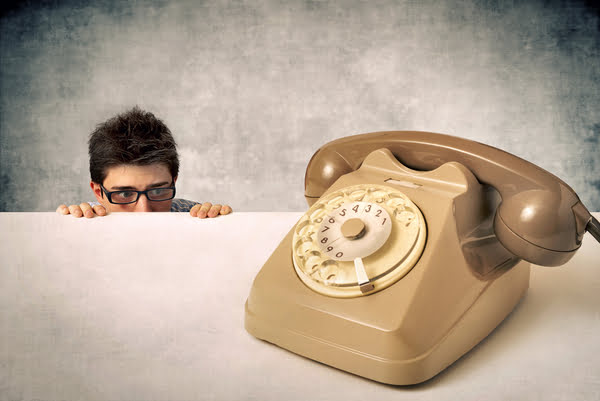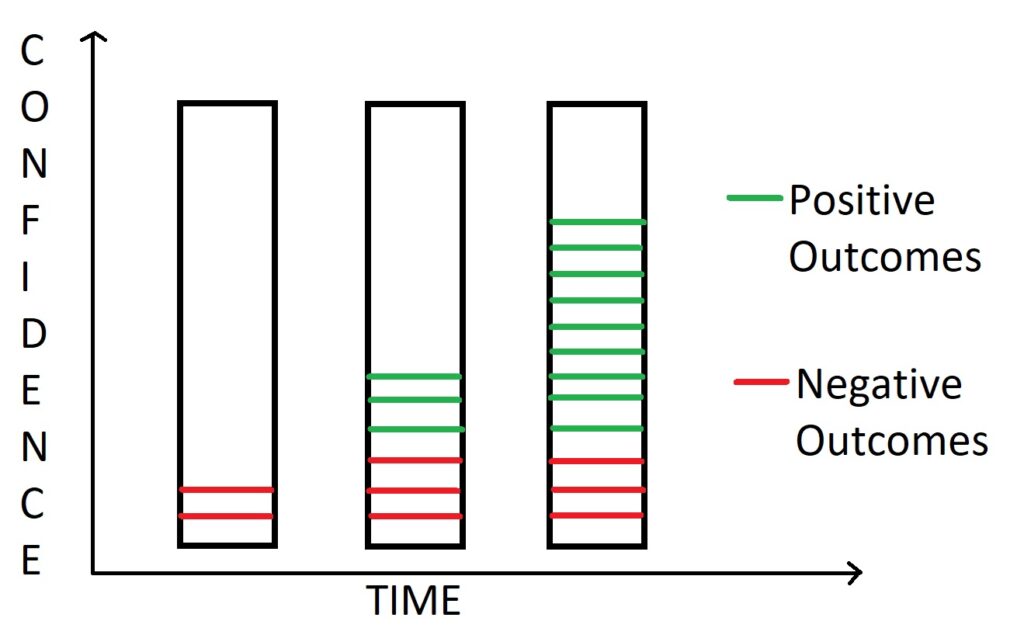Phone anxiety or telephobia is when you want to make or attend a phone call, but fear stops you from doing it. You know that the call is important to you, but you get so nervous that you try to talk yourself out of doing it.
People who don’t like talking on the phone usually have phone anxiety. This anxiety is an extension of their social anxiety. They have problems interacting with people in general.

At the same time, some people just don’t like talking on the phone. Not due to anxiety but other reasons such as phone calls taking up too much time.
Also, some people don’t have social anxiety- they’re okay with in-person interactions- but phone calls can get their hearts racing.
This is why it’s essential to realize that you can only say that you have phone anxiety when, deep down, you want to make or attend that call but are afraid of doing it.
Needless to say, being afraid of making or attending calls can be detrimental to your professional and personal life. While most jobs no longer require you to call nowadays, many customer-facing jobs (like Sales) still require that you get good with phone calls.
Phone anxiety symptoms
If you still have doubts about whether or not you have phone anxiety, the following symptoms of phone anxiety should clarify things:
- Extreme fear before, during, and after the phone call
- Doing what you can to avoid phone calls
- Delaying making or attending phone calls
- Over-analyzing the call after the call
- Being afraid the call won’t go well
- Worrying about bothering the other person
- Worrying about saying the wrong things
- Experiencing physical symptoms of anxiety like increased heart rate and shaking
- Being self-conscious during the call
- Your loved ones complaining that you never call them
What causes the phobia of phone calls?
To answer this question, we need to look at how telephonic communication differs from other modes of communication, especially texting and face-face interaction. Email is delayed texting.
Unlike texting and face-face interaction, phone conversations require that you think on your feet. Texting gives you time to craft the perfect text. You can even ask your friends to provide you with feedback on the text.
You don’t have that luxury in calling. Phone calls immediately put you on the spot. If you were to pause to craft the right thing to say, the other person would find it hard to make sense of the pause. Pauses make phone conversations awkward.
But phone conversations are more intimate than texts. You feel more connected to the person whose voice you’re hearing.
Still, phone calls aren’t as intimate as face-to-face interactions. Phone calls allow you to pick up on paralanguage- the manner of speaking- which conveys a lot in addition to words. But a lot is still left out that can only be accessed during in-person interactions.
So, phone calls put you in this weird spot between texting and in-person communication. You feel intimate, but there’s a ton of nonverbal communication that you miss out on.
When we interact with others, we pay attention to their feedback to gauge how the interaction is going. The other person’s nonverbal feedback allows us to read their emotions and course-correct.
Phone calls deprive you of all this crucial information, and your fear that you might be bothering the other person or that the call isn’t going well exacerbates.
Phone anxiety may get worse when you’re in a public place. Sounds that we can’t make sense of are effective in drawing our attention. When people hear you talking on the phone, they only get to hear one side of the communication.
Our minds like to fill in the gaps. This makes them pay more attention to you than they would to regular two-sided interaction. Their brains can’t help but try to figure out the other side of the communication.
You know this, and it makes you even more afraid to make phone calls in public.
How to get over phone anxiety
At the root of phone anxiety- and social anxiety in general- is the fear of being evaluated negatively. Also, you don’t want to mess up because the call is important to you.
This is why phone anxiety may only show up when you have to attend a high-stakes call. Be it a call for a job interview or the first call with your crush.
All novel experiences tend to induce slight anxiety in us, but high-stakes novel experiences where mistakes can be costly are breeding grounds for anxiety. When messing up has the highest potential to ruin your life, that’s when you’re most afraid to mess up.
Ironically, the fear of messing up often makes people mess up.
Phone anxiety can be effectively dealt with using the following techniques:
1. Strive to be rational
Your high-stakes phone call induces extreme fear in you, which makes you distort reality to fit that fear. You become worried that you’ll mess things up. You recall incidences from your life where you messed up similar situations in the past.
You’re trying to weave a narrative to feed your fear.
Take a step back and think more rationally. Some good questions to ask yourself are:
- “Have I always messed up similar situations in the past?”
- “What are some examples where my first call with someone went well?”
- “What’s the worse that can happen if I mess up?”
- “Will I be done for if I mess up, or can I still remedy things?”
- “Am I being a perfectionist?”
Having healthy beliefs about failure can help significantly. Even if you mess up the phone call, the world will probably not end. You’ll get more opportunities to make things right.
Having a healthy belief about anxiety will help even more. Realize that it’s natural to feel some fear when you’re doing something new. When you let anxiety be and quit fighting it, it comes and goes like a guest in a hurry.
2. Make more phone calls
We feel so anxious while trying new things because we have little or no deposits in what I call our confidence bank account.
We all have a confidence bank account for each of our skills. The more deposits you have in an account, the more skilled you are. What are these deposits, you ask?
These deposits are reps with positive outcomes. The more you do something successfully, the larger your confidence bank account for that skill grows.
Of course, the first deposit will be small and will probably yield a negative outcome (failure). But as you keep trying and depositing, your deposits become better.
So, the way to get good at phone calls (and everything else) is to do it repeatedly.
Since many people prefer texting over calling these days, their ‘calling confidence bank account’ is lacking. They don’t have a lot of experience taking on the phone. The way to remedy it is to expose yourself to more phone calls.

3. Preparation
Anxiety is nothing but a message from your mind that you’re unprepared for an important upcoming event. You’re unprepared because you’re not confident. You’re not confident because your confidence bank account is lacking.
You want more deposits, but you don’t have much time. What do you do?
After all, it takes months or years to obtain sufficient positive outcome deposits. But there’s a way to short-cut this process, a way to trick your mind into being more confident about something where it lacks deposits.
That trick is preparation.
Preparation and practice are nothing but making continuous deposits into your confidence bank account.
By rehearsing how you’ll speak during the phone call over and over, you eventually convince your mind that you have enough positive outcome deposits to go for it.
4. Reframe the situation as a chance to learn
Sure, by not making the phone call, you’ll stay in your comfort zone. But what are the costs of that?
Avoiding the call altogether may be detrimental to your personal or professional life. It’s likely to be worse than calling and messing it up. Your deposit will remain at the same low or zero level.
If you make the call and mess up, at least you deposited something in your confidence bank account. You’ll learn a ton and make better deposits in the future. Avoiding the experience altogether is missing a chance to make a deposit.
5. Focus on the other person
Before the call, intend to focus more on the other person. Anxiety forces us into this ‘self-monitoring mode’ where we obsessively focus on ourselves to avoid making mistakes.
But if you decide to see this situation as a chance to learn, you’ll maximize your learning if you focus more on the other person. Listen to what they have to say and pay attention to how they respond to you.
The more you focus on them, the more likely you will pay attention to their needs. They’ll feel understood, and the communication will go well.
Sometimes you can’t fool your mind
If you lack proper communication skills, you can’t fool your brain into thinking that you’ll do well. Preparation can help, but you need to put in the reps and make those actual deposits.
Also, if you’re likely to bother the other person, you can’t fool your brain into thinking that you won’t bother them. For instance, most people don’t like getting cold-called.
So, if you’re in Sales or Marketing and cold-calling is your marketing strategy, maybe your anxiety about bothering people is justified and you should try a different marketing approach.
